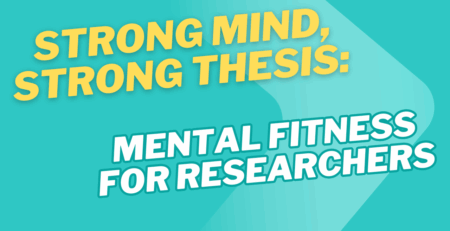19May
- Home
- A Day in the Life of a PhD Student
- PhD Research Updates
- A Day in the Life of a PhD Student

What does a PhD student do all day? If you’ve ever asked this question, you’re not alone. The life of a PhD student is a complex blend of research, writing, learning, stress, and occasional sparks of eureka moments. It’s not just about sitting in a library for hours or wearing lab coats—it’s a marathon of the mind. In this blog post, we’ll take you inside a typical day in the life of a PhD student. Whether you’re thinking about pursuing a PhD or just curious, this journey will give you a realistic, relatable, and SEO-optimized look at what it truly means to live the doctoral life.

Every PhD student’s day starts differently. Some are early risers, squeezing in a morning run or a cup of coffee before diving into their research. Others—especially those burning the midnight oil—might hit the snooze button until 9 or 10 AM. Unlike a traditional 9-to-5 job, PhD life often comes with a flexible schedule, though deadlines are anything but forgiving.
Pro Tip: Establishing a morning routine improves mental clarity and productivity. Try to wake up at the same time each day, even if your schedule allows for flexibility.
The morning meal is not just about filling the stomach—it’s about fueling the brain. Whether it’s oatmeal, eggs, or just strong black coffee, breakfast becomes the first ritual of mindfulness. Many students also catch up on academic Twitter, research news, or journal alerts during breakfast to stay updated in their field.
This is peak productivity time for most PhD students. The brain is fresh, distractions are minimal, and it’s the perfect time for deep work. This may include:
The literature review phase can be mentally exhausting. You might read ten papers and find only one sentence worth citing—but every sentence matters.
Depending on the field, this time might be spent:
For humanities and social sciences students, it might mean working through theoretical frameworks or preparing survey instruments.
Tip: Use tools like R, SPSS, Python, or MATLAB efficiently. Learn shortcuts, scripts, and libraries relevant to your field to save time.
Lunch is often a social or solitary moment. Some students eat in the campus cafeteria or with lab mates, while others bring their own food and eat at their desks. This is also the time when many step outside to get some sun, listen to a podcast, or just take a breather.
Don’t underestimate the power of a proper lunch break. It resets your mental state and helps avoid burnout.
PhD students frequently meet with their research supervisors, and these sessions can range from weekly to monthly depending on the stage of your research. A typical meeting might involve:
These meetings can be nerve-wracking, especially when your supervisor isn’t satisfied with your pace or direction. However, they’re also essential moments of mentorship.
Writing is a constant companion in the life of a PhD student. Whether you’re working on a journal article, a thesis chapter, or your research proposal, words matter.
The writing process includes:
Not all PhD work is intellectually stimulating. A chunk of time goes into:
You might also be involved in teaching assistant duties, grading papers, or conducting lab sessions for undergraduates. These responsibilities can be overwhelming, especially when they overlap with crucial deadlines.
Evening time varies significantly. Some PhD students hit the gym, go for a walk, or attend yoga classes. Others dive back into work—especially if they’re on a tight deadline.
Many PhD students also use this time to:
While some students wind down with Netflix, journaling, or video calls with friends and family, others push into another work sprint. The quiet nighttime hours are ideal for uninterrupted focus, especially for writing or coding.
That said, late-night productivity comes with risks. Poor sleep and burnout are very real issues in academia. A consistent bedtime routine and boundaries are critical for long-term sustainability.
Many PhD students end their day by reflecting on what they achieved and planning the next day’s tasks. This might involve:
This small but powerful ritual helps reduce anxiety and keep the bigger picture in focus.
Life as a PhD student isn’t all about academic achievements. It’s also about:
But amidst the challenges, there’s growth:
A day in the life of a PhD student is intense, unpredictable, and often lonely—but it’s also deeply rewarding. It’s a lifestyle shaped by passion, curiosity, and the drive to push knowledge forward. If you’re considering this path, remember: the life of a PhD student is not about speed—it’s about persistence. There will be highs and lows, but the intellectual freedom, personal growth, and sense of purpose make it a truly unique adventure.
Kenfra Research understands the challenges faced by PhD scholars and offers tailored solutions to support your academic goals. From topic selection to advanced plagiarism checking.

Publishing a paper in an SCI Indexed Journal (Science Citation Index) is a prestigious milestone for researchers. However, the... read more

Submitting research manuscripts to an academic journal is an essential step for researchers seeking to share their findings. However,... read more
The statement suggests that there are plans to introduce scholarships for MPhil and PhD students who wish to pursue their... read more

Pursuing a PhD is a significant academic and professional milestone. Proper Planning Your PhD Research ensures a... read more

As we progress through 2025, the field of cybersecurity remains as crucial as ever. With the continuous evolution of... read more

The path to a PhD is a marathon, not a sprint. It's a journey marked by intellectual challenges, emotional... read more
Students explore higher education avenues at Oakridge University Fair: The statement "Students explore higher education avenues at Oakridge University Fair" suggests... read more
WhatsApp us
Leave a Reply